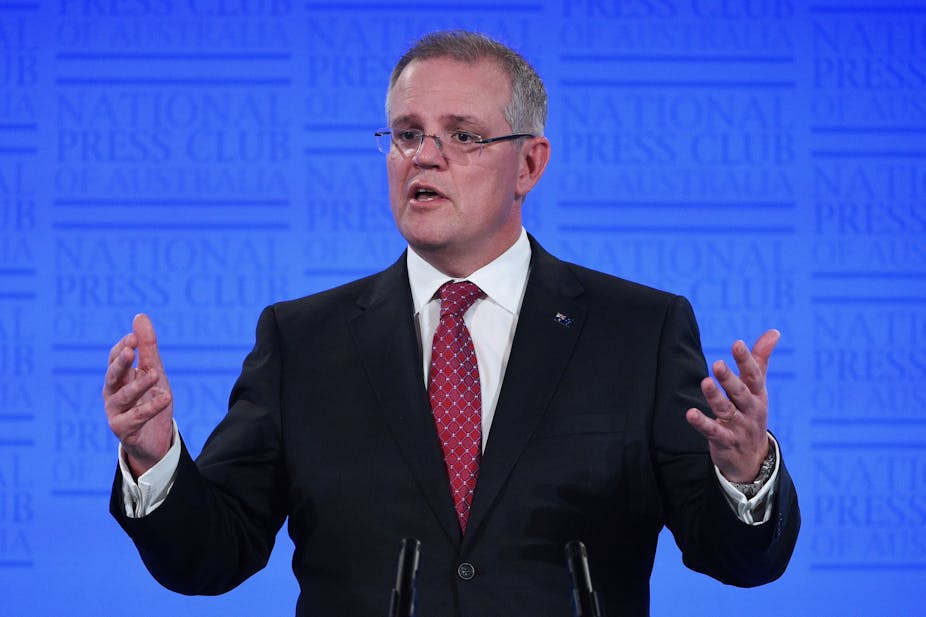Treasurer Scott Morrison has “rescaled” the tax debate to hold out the prospect of “modest” tax relief that may prevent average wage earners moving into the second highest tax bracket.
Appearing at the National Press Club Morrison said that now the big tax mix switch, based on a higher GST, was off the table “it would be very difficult to deal with past sins” of bracket creep.
“But there is modest potential to deal with the fact that other future sins could be committed in this area.”
The potential move of average wage earners into the second highest bracket (37 cents for each dollar over $80,000) deeply troubled the government.
“We may be able to prevent that outcome,” he said.
Morrison also indicated that company tax relief was still on the agenda. The government was looking at other tax changes “that can fund the reductions in personal income tax and company tax”, he said.
The government’s view about the budget was that “we want to put as much money in your hands … rather than keeping it in ours”.
While he said the only way to have lower taxes was to have lower expenditure, Morrison appeared to dismiss the idea of major spending cuts in the budget. “What I’m saying is we are looking to control new spending,” he said. “We have to exercise great discipline and restraint in terms of new spending and ensure we continue to keep the tension on our existing levels of spending.” This was a very different proposition from big spending cuts, he said.
“The spending reductions that we would seek to achieve by controlling new spending is designed to deal with the deficit. The issues in relation to tax that we would have under consideration would be designed to try to reduce taxes in other areas.”
Morrison once again stressed there was not a revenue problem. But he said most of the work of bringing the budget back to balance over the next few years was actually being done by revenue – by income tax payers paying higher average tax rates of average tax every single year.
He said the Coalition government had saved more than $80 billion but it had also had new spending of more than $70 billion.
So “we are basically in the same position that we were two years ago”. But things would be far worse if the new spending pressure had come through and the government had not been able to offset that with the savings it had achieved.
He said fiscal consolidation was “a long road”. There was no quick fix to it, no one statement, no one budget. Multiple budgets and hard drilling through boards were needed.
Morrison was dismissive of the states’ pleas for help with their hospitals’ and schools’ financing. “We all have to manage our budgets” and most states were in surplus.
While the federal government would work co-operatively with the states, “I don’t think the states are branch offices of the Commonwealth. … I’m a federalist at heart, and I think state governments need to run their own show”.
Shadow treasurer Chris Bowen said it was clear “that this was the speech that Scott Morrison didn’t want to give. When he booked himself in to go to the Press Club he was planning on giving a speech backing in an increase in the GST. That option was taken away from him by his Prime Minister”.
It was also clear that without an increase in the GST, Morrison had “absolutely nothing left”, Bowen said. He was a treasurer “without an economic framework or a plan for Australia’s economic future”.

